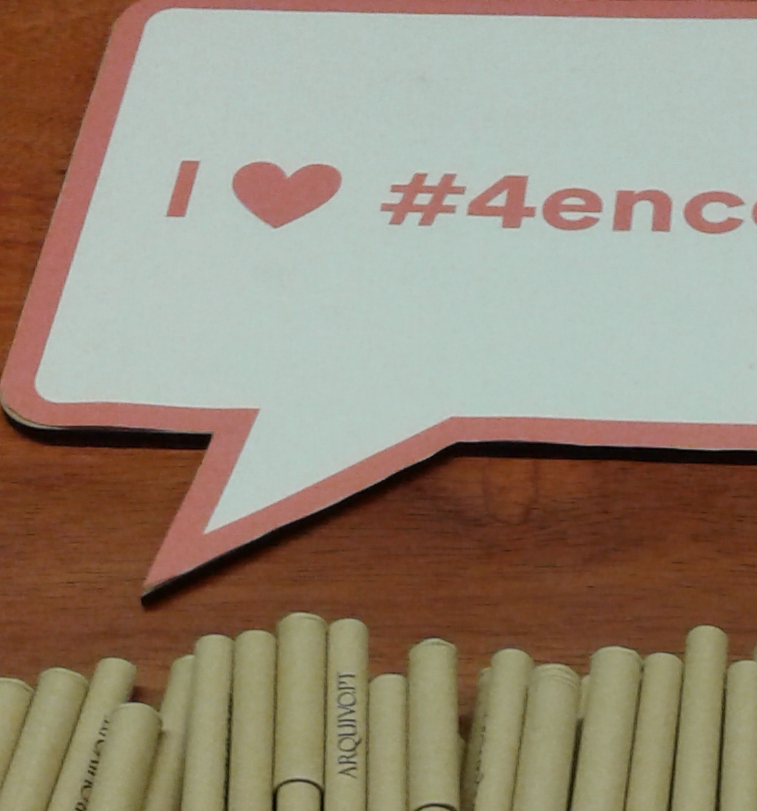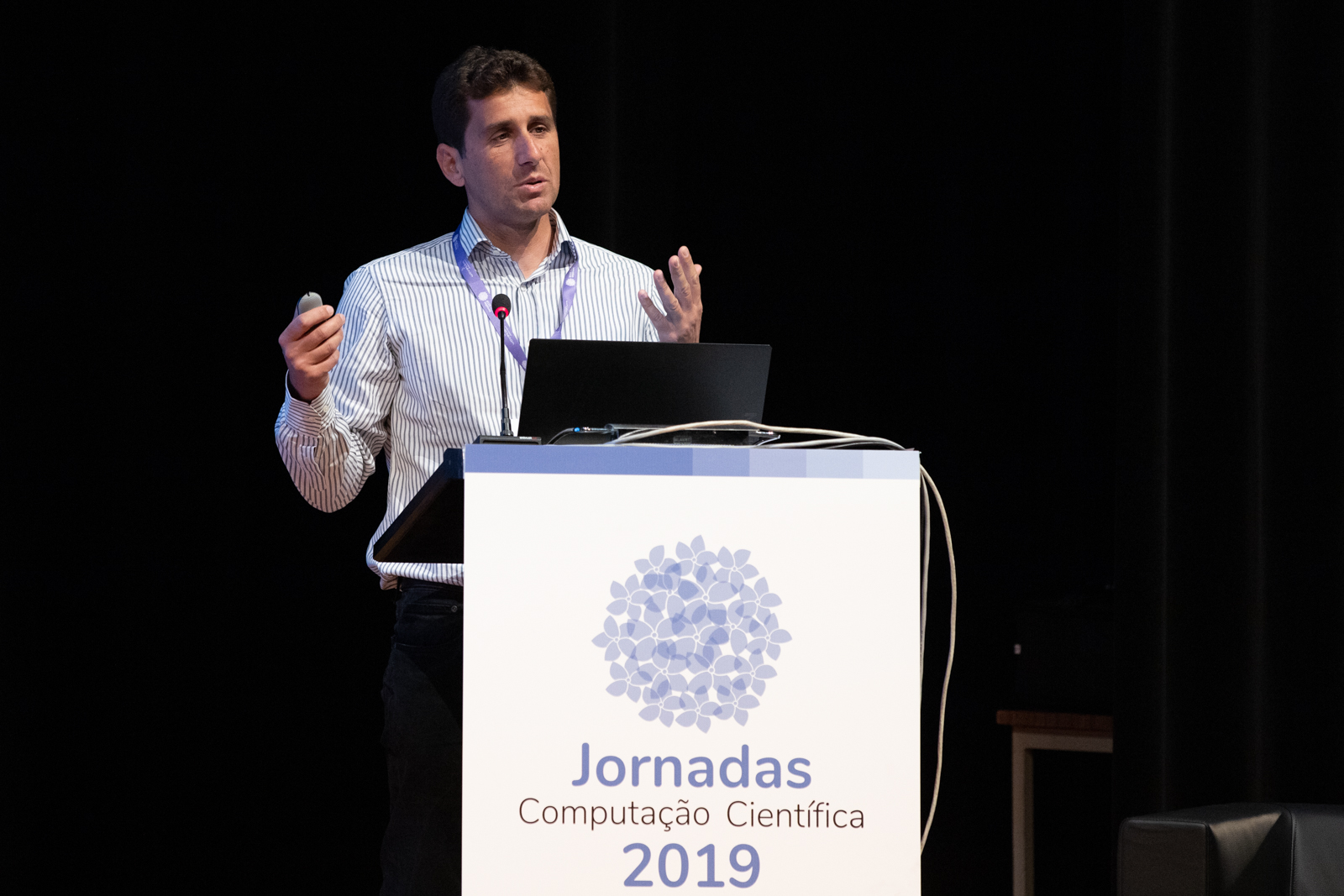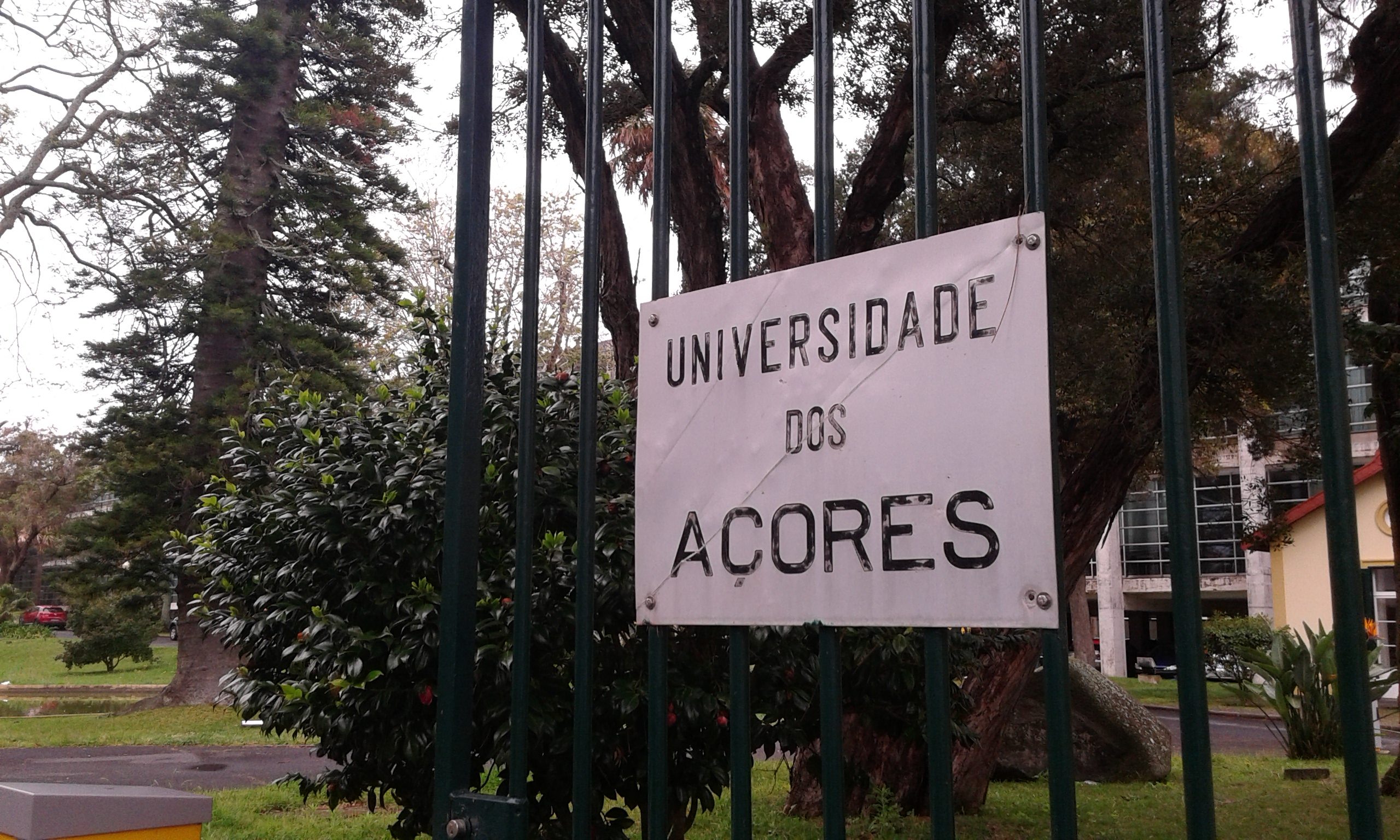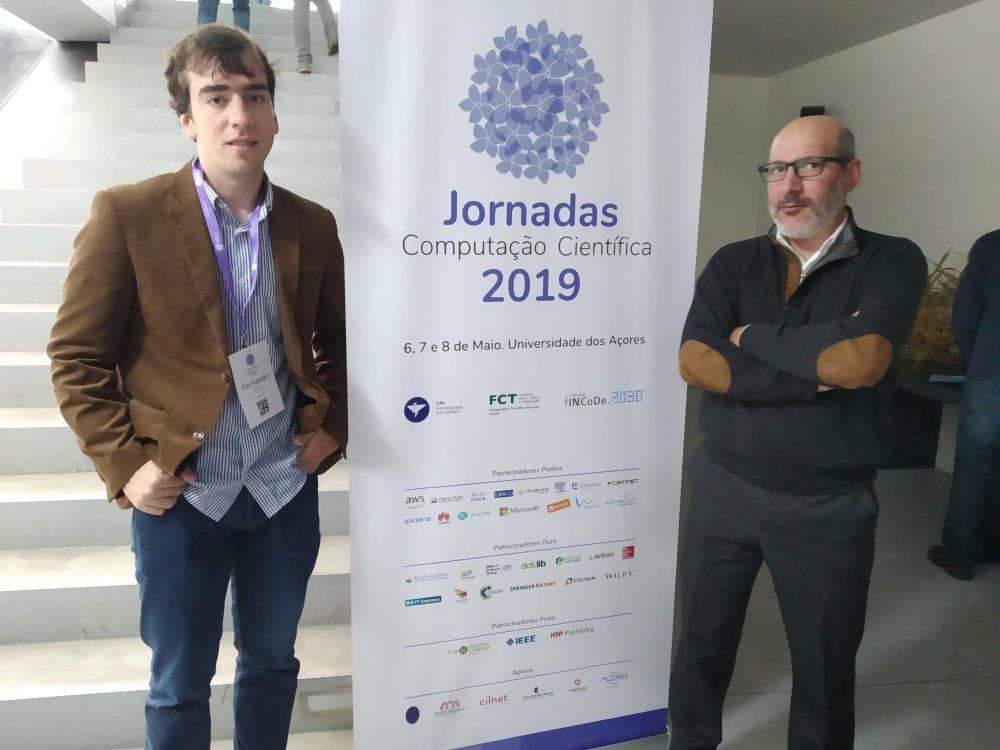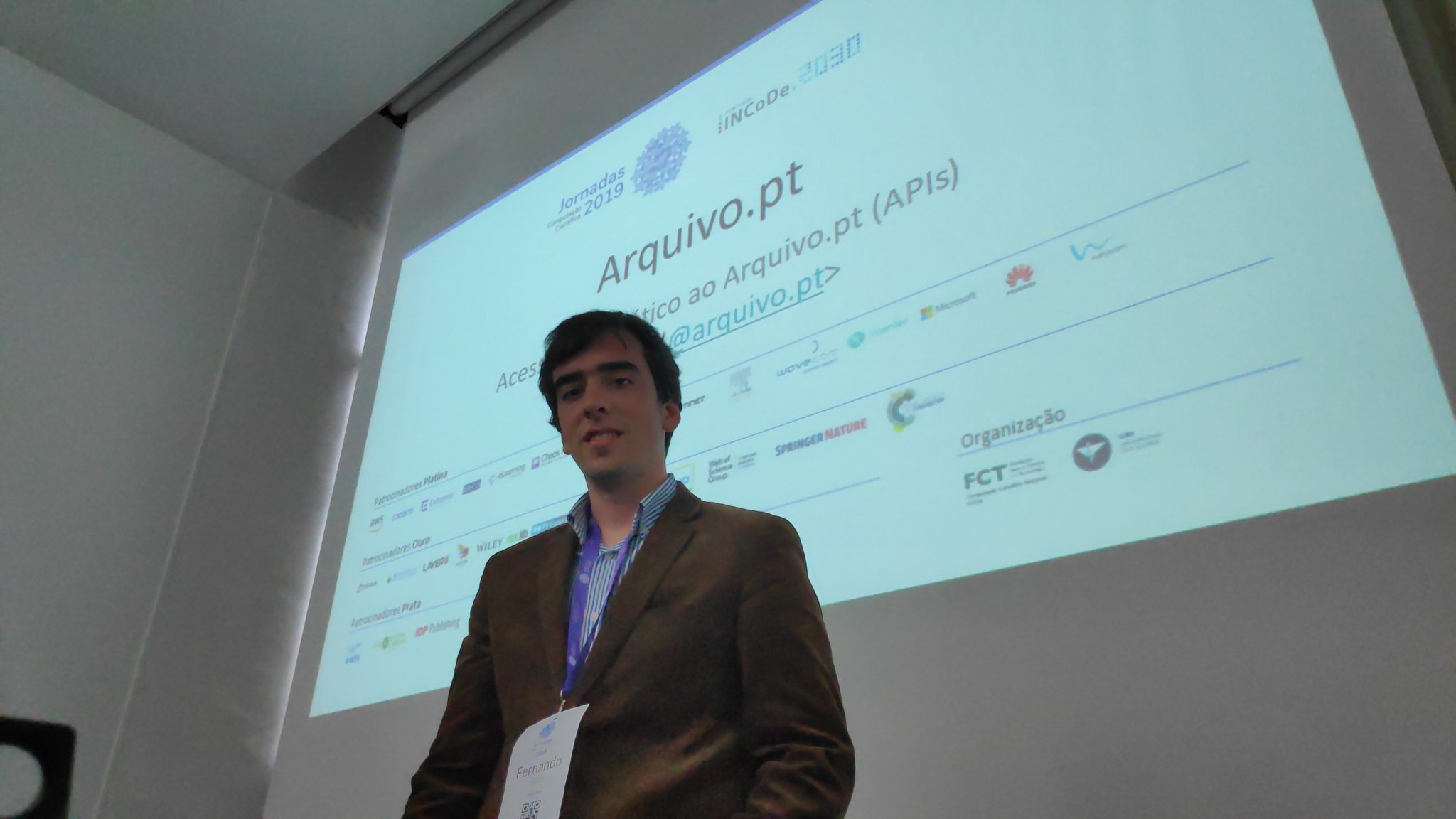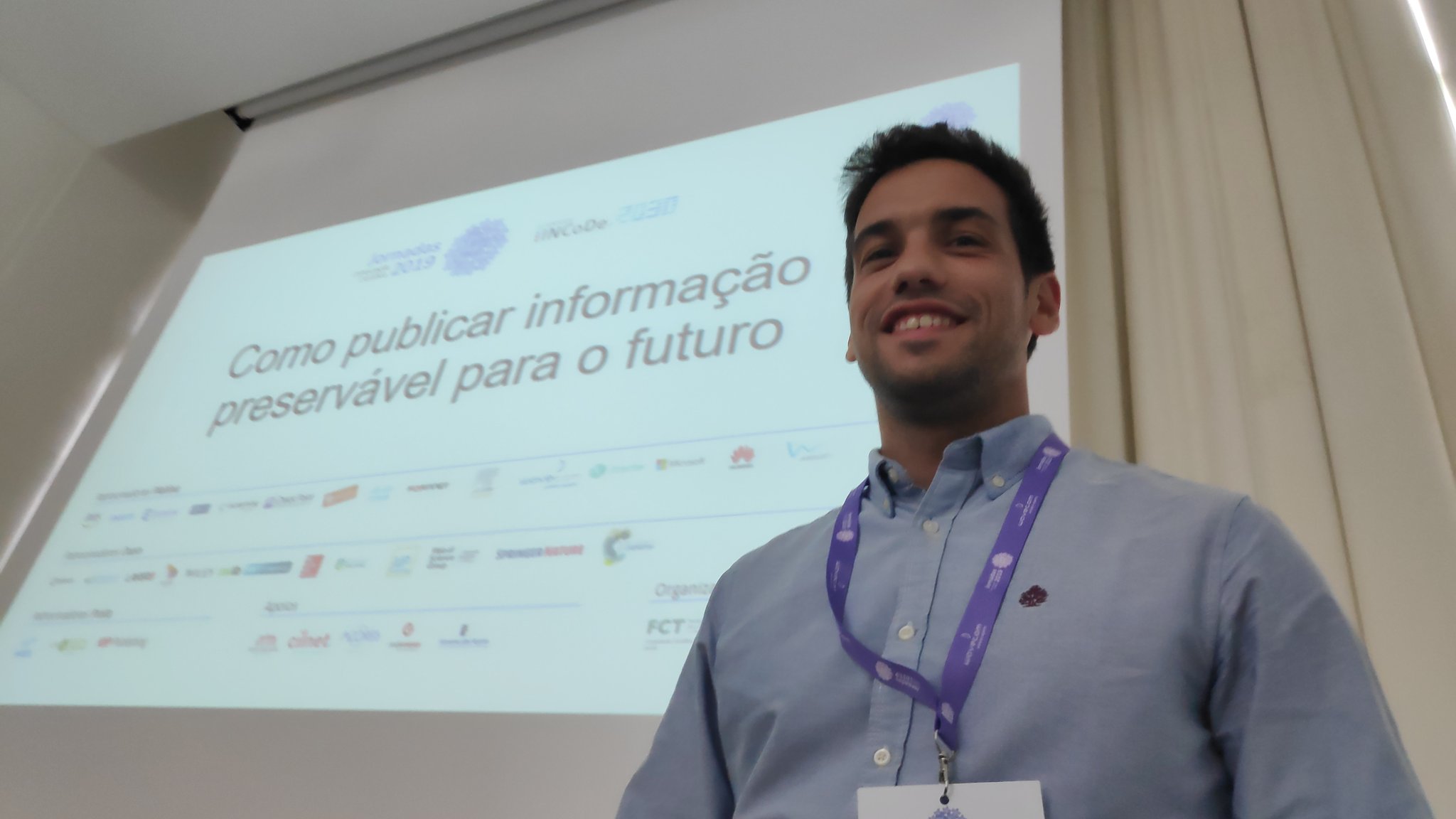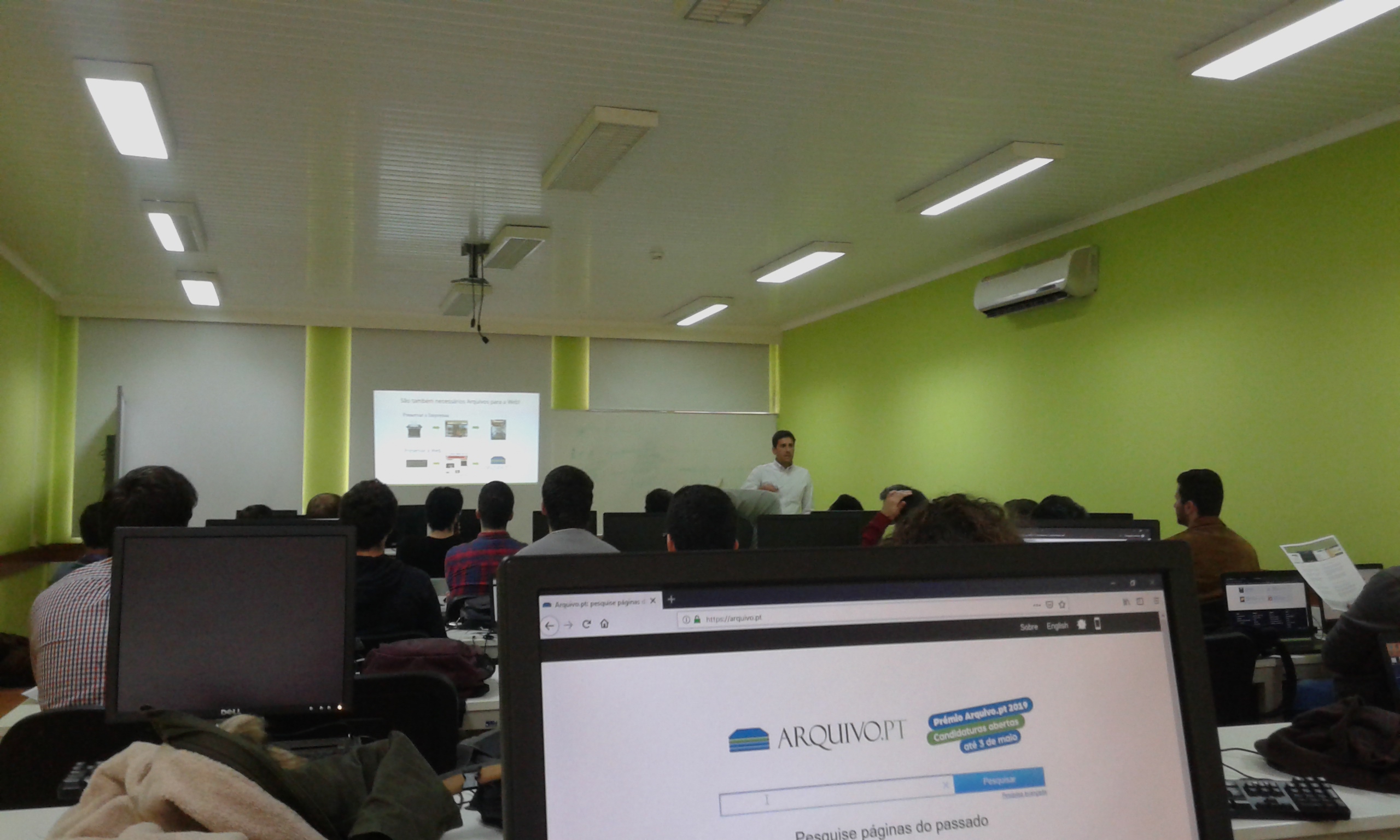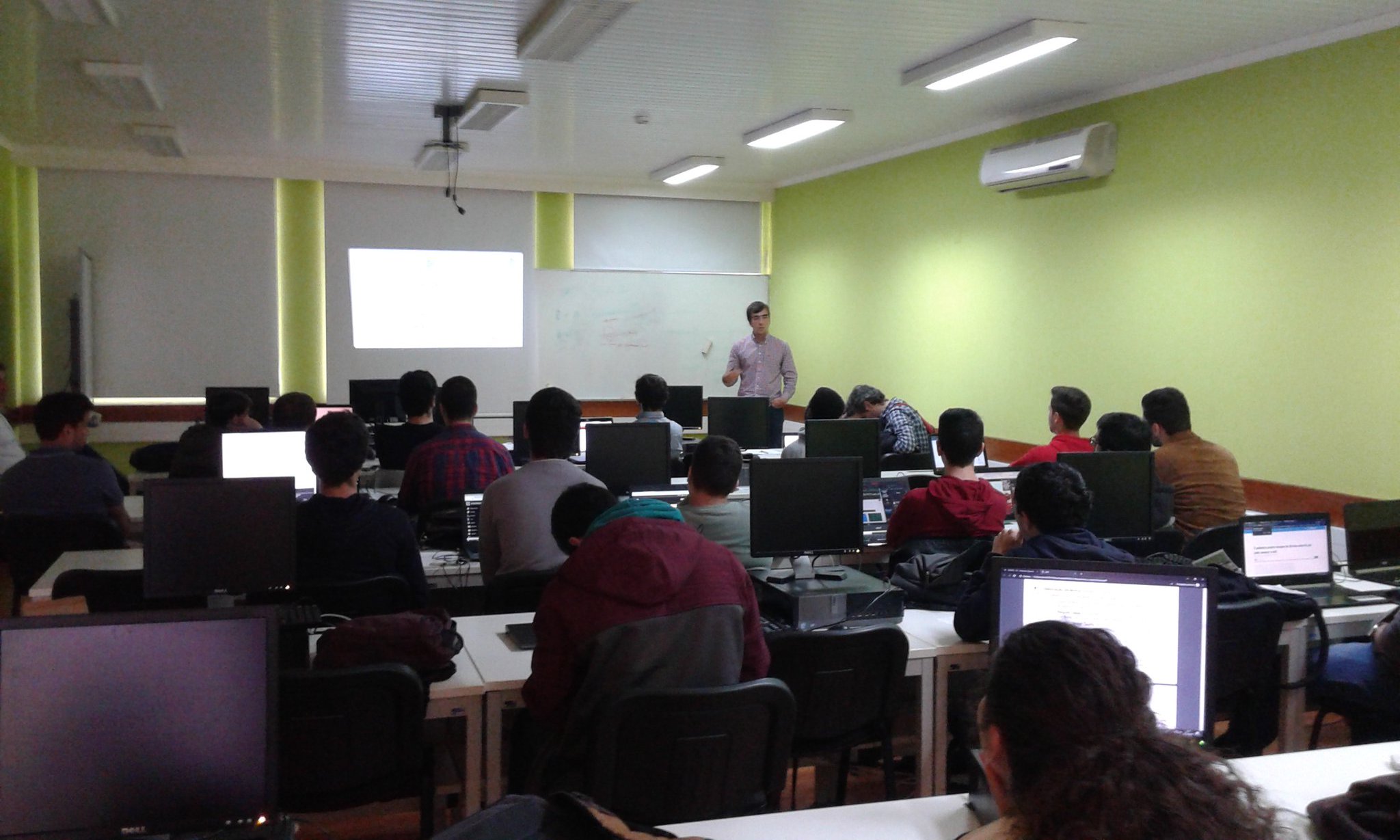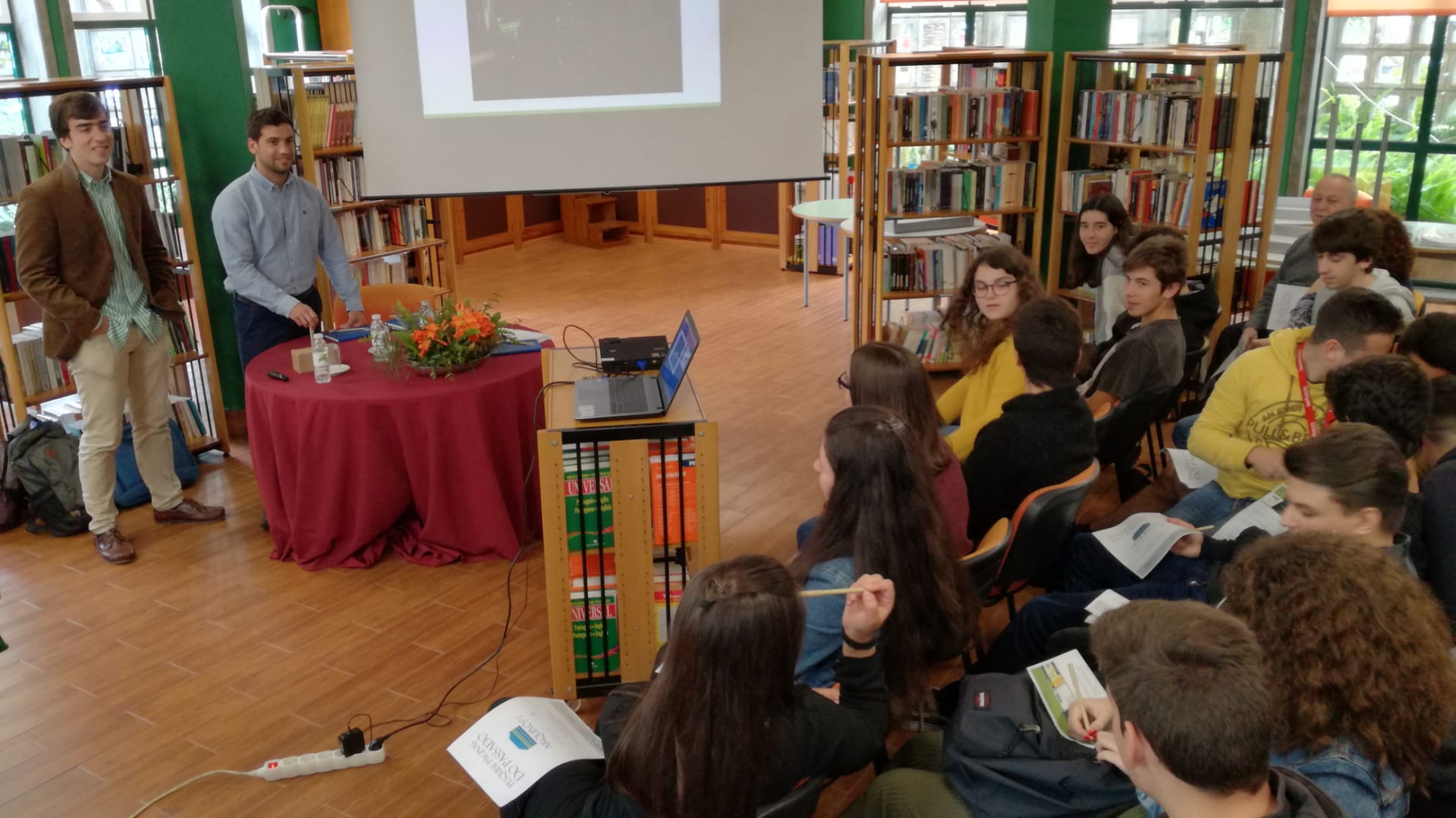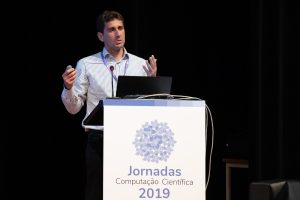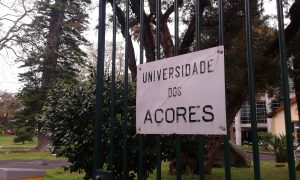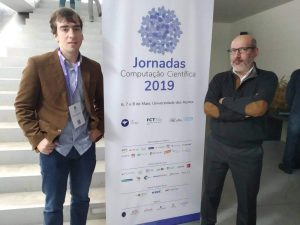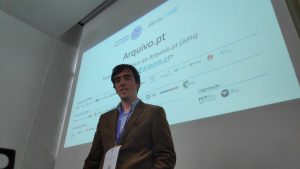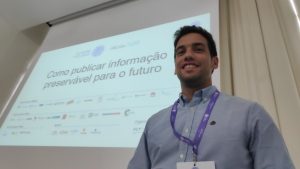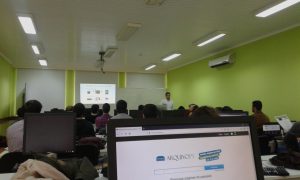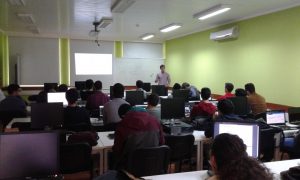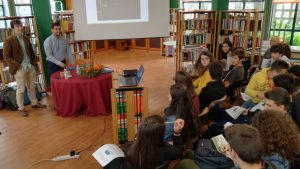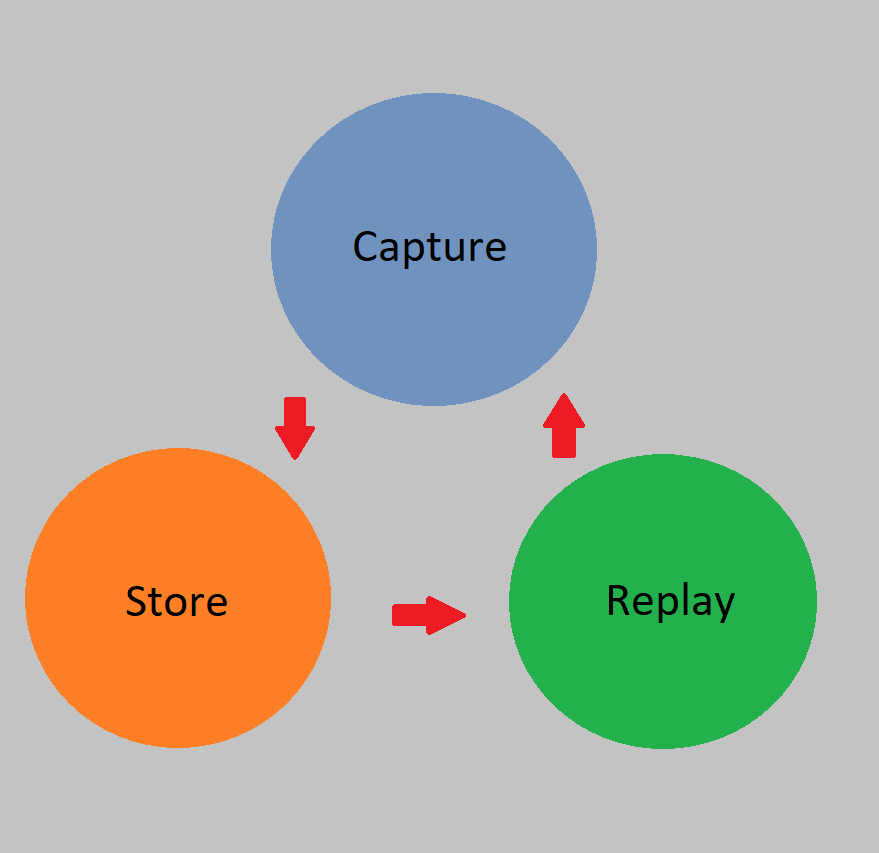The 4th Meeting of Libraries of Higher Education, for librarians in Portuguese universities, held at Coimbra University, on 4 and 5 June 2019, had two presentations about Arquivo.pt.
Workflow for the preservation of institutional web sites (fig. 1) was suggested as a guide for anyone to be able to care for and preserve quality the pages of own organization.
The second presented the new “Memorial” Arquivo.pt service, which preserves the sites at the end of their life cycle, keeping them accessible to institutional memory and research.
About 170 librarians participated at the meeting and were challenged to collaborate with Arquivo.pt adopting simple but decisive practices to preserve the Web with quality.
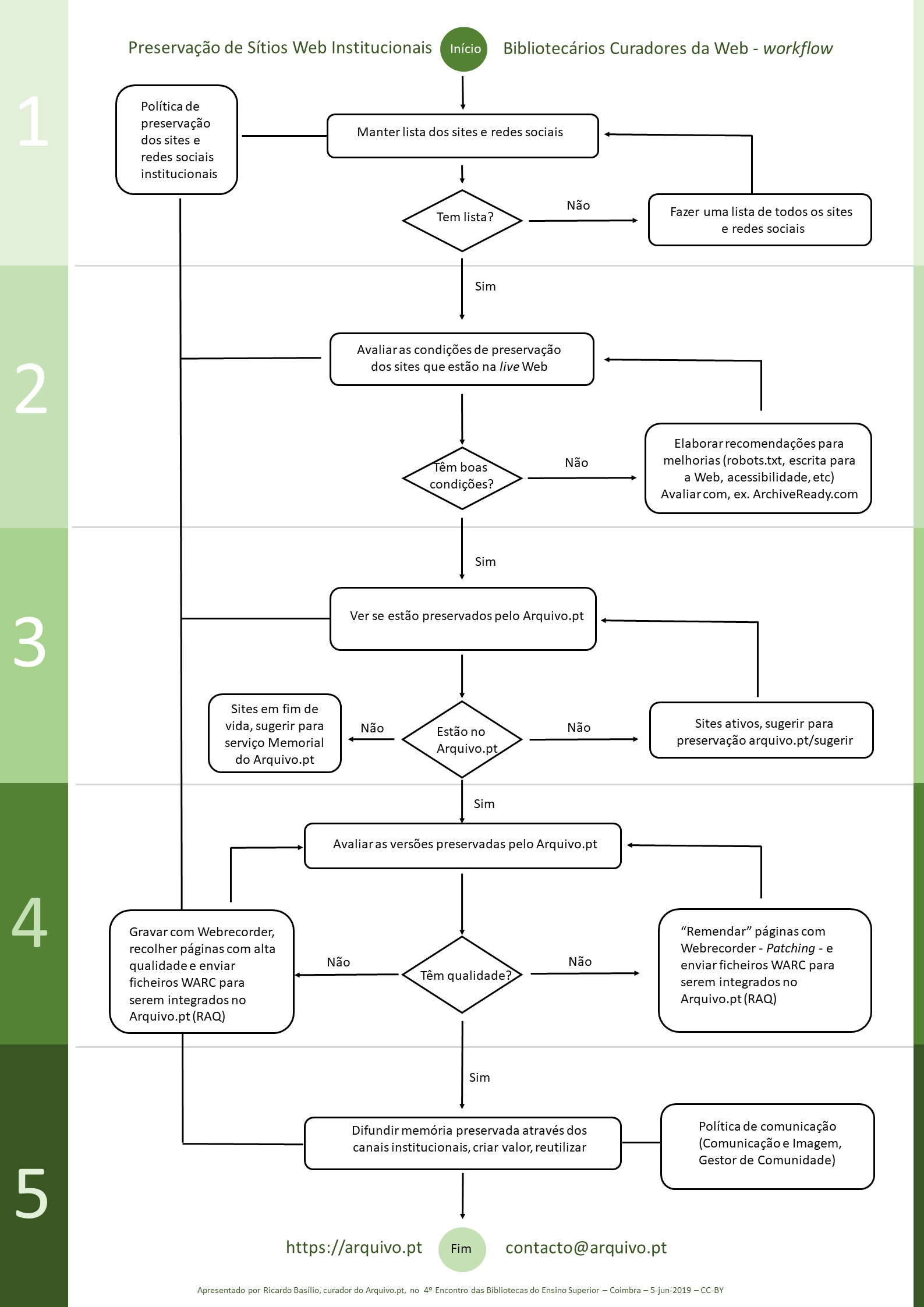
Fig. 1 – Workflow to preserve institutional websites (PDF, in Portuguese)
